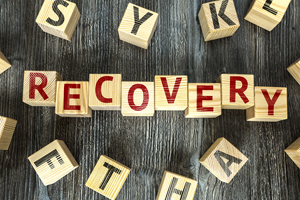 Can we have a relationship with alcohol?
Can we have a relationship with alcohol?
Let’s consider how a “relationship” with alcohol matters.
How there may be a difference from when alcohol is a minor or more serious problem.
In other words when it drifts from a casual relationship to a more serious one and at times, becomes an actual commitment. Like a marriage or partnership.
Yes, that happens with alcohol and with other drugs too.
As a Licensed Counselor who is also a Certified Addiction Counselor I see this in my Chestnut Hill counseling practice.
The following article highlights the possibility that one can redirect and get back on track with their drinking before it gets completely out of hand and if not, I help describe options.
Read it through and check out my suggestions at the bottom.
According to Joseph Nowinski, Ph.D. author of the book “Almost Alcoholic”, there are:
Three Kinds of Relationships with Alcohol
“One way that we have found useful in terms of thinking about different zones is in terms of different degrees of relationship. Just as our interpersonal relationships can differ in terms of intensity, so can our “relationship” with drinking.
These differences aren’t separated by sharp lines; rather, they tend to blend into one another. Let’s look at these different kinds of relationships.
Casual Friendship
People whose relationship with alcohol falls into this stage drink primarily in social settings. This is what we mean by “normal social drinking.” It’s a glass or two of wine at a wine-and-cheese get-together among friends, a couple of beers at the Sunday afternoon football party with friends, or an occasional happy hour cocktail with people from work. If we do drink alone at this stage of use, it is not typically on a daily basis, and it involves only a drink or two in one sitting.
Social users never binge, and they are neither psychologically nor physically “dependent” on drinking, for example, in order to overcome social anxiety. People have used alcohol socially — indeed, it has been called a “social lubricant” — for literally centuries. Drinking in this context is said to help people “loosen up” or “relax.”
In small quantities alcohol may do this. A glass of wine or a beer can take the edge off just about any common stress we may be feeling. It can lower our inhibitions us just a bit (hence the term “unwind”), and thereby facilitate social interaction.
Negative consequences, of course, can occur at any stage of drinking, but they are relatively rare at this stage. Viewed in terms of a relationship, at this stage alcohol can best be thought of as a casual friend. In terms of the drinking spectrum, a casual friendship with alcohol falls at the left end.
Relationship with Alcohol
When we say we’ve gone from being casual friends with someone to having a “relationship” with them we are implying a stronger connection.
So it is with alcohol.
In this second stage, a person has learned to use alcohol consistently for one of two reasons: either to create certain positive feelings (e.g., relaxation, euphoria) or else to avoid certain negative feelings (e.g., anxiety, loneliness).
This type of drinking is represented by the large gray area that we have defined as the “almost alcoholic” zone on the drinking spectrum. It is indeed a “gray area” because, first, there is no sharp line that separates normal social drinking from becoming an almost alcoholic.
Second, there are even degrees within that zone, with some people being much closer to true alcoholism than others. In other words, as a person moves to the right on the drinking spectrum the stronger their “relationship” with alcohol becomes.
Rather than stepping over a sharp line in the sand, a person gradually slips away from social drinking (“casual friendship”) and into almost alcoholic drinking (“relationship”).
At some point the symptoms and behavior patterns associated with being an almost alcoholic start to appear, especially drinking consistently alone and in an effort to either create feelings (relaxation) or mute them (anxiety, depression), or to influence behavior (to socialize, to get to sleep).
At this point alcohol has become a reliable “buddy.”
Drinking at this stage makes a person more vulnerable to certain negative consequences, such as more frequent hangovers, unpredictable mood changes, or lack of concentration and mental acuity. If we move deeper into the almost alcoholic zone, our bodies become less efficient at metabolizing alcohol, with the result that we feel tipsy more quickly, which can lead us to behave in ways that later embarrass us.
Finally, at this stage loved ones become aware of our drinking and may experience a degree of “jealousy” over our relationship with alcohol.
Commitment to Alcohol
This corresponds to the two areas at the far right of the drinking spectrum: alcohol abuse and alcoholism. These stages, which are associated with severe symptoms and consequences that qualify for a formal diagnosis, mark the end of the “love affair.”
According to Dr. Nowinski, at this stage, drinking has progressed from being a serious relationship to the level of what could be called a commitment that the drinker has made with alcohol. The committed drinker makes sure that he or she is never far from alcohol. Over time, his or her life style begins to revolve around more and more around drinking.
One husband described how his wife, as she moved into this stage of drinking, refused to go anywhere that she could not drink. She refused, for example, to take a bus tour with him to visit three national parks because she could not take liquor on the bus. And as one wife put it, “My husband won’t go anywhere without his cooler. It’s as attached to him as his wedding ring.”
By the time drinking has progressed to this stage, loved ones begin to harbor deep resentments and can become increasingly alienated from this commitment that is not only intimate (like a marriage) but which seriously competes with or overshadows the drinker’s other commitments — to spouses, children, friends and work.”
What Works with Alcohol?

In my private Chestnut Hill, Philadelphia or Montgomery County counseling practice I suggest “almost alcoholics” keep in mind that they may be minimizing their drinking or drug use to themselves and others.
It’s easy to underestimate the frequency, amount of alcohol or substances consumed, and the harm being done.
That’s the nature of “addiction” or those with substance abuse disorders.
They are often good people who deep down feel terrible about the damage they may be doing to themselves and loved ones who may identify with the term codependent or codependency.
In the “old days” people struggling with minor or major substance use disorders waited to get help until the damage was significant.
Not any more.
There are many, many treatment, resources, and support options out there in addition to more well known ones like rehab, AA, NA or SMART Recovery.
Treatment for alcohol or drug concerns as well as for alcoholism and addiction is more varied than what we see in the media.
Cognitive Behavioral Therapy, DBT, CBT and Motivational Interviewing are a few of many evidenced based treatments shown to be effective for some who struggle with substance use disorders. Mindfulness Meditation can help. EMDR. Exercise and Yoga. There’re even Yoga classes specifically for people in “recovery” or who are trying to change behaviors like alcohol and drug misuse.
Sometimes prescribed medications such as antidepressants or Naltrexone can be useful too both for short and longer term periods of time.
Family involvement is often a key factor in successful outcomes for substance use disorders.
A thorough assessment with a licensed counselor, psychologist, psychiatrist, or therapist who truly specializes in alcohol and drug concerns can help you clarify what options or combination of choices may work for you. Choose a therapist who is not exclusively wedded to one approach. Its best to have choices and determine what works for you.
Deb Owens is a Licensed Counselor and Relationship Counselor in Chestnut Hill and Montgomery County, PA near Lafayette Hill, Fort Washington, and the Main Line. She works with individuals and couples and specializes in relationships.
She helps adults affected by their own or another’s alcohol or drug use including those who identify as codependent or as adult children of alcoholics or addicts or ACOAs.

